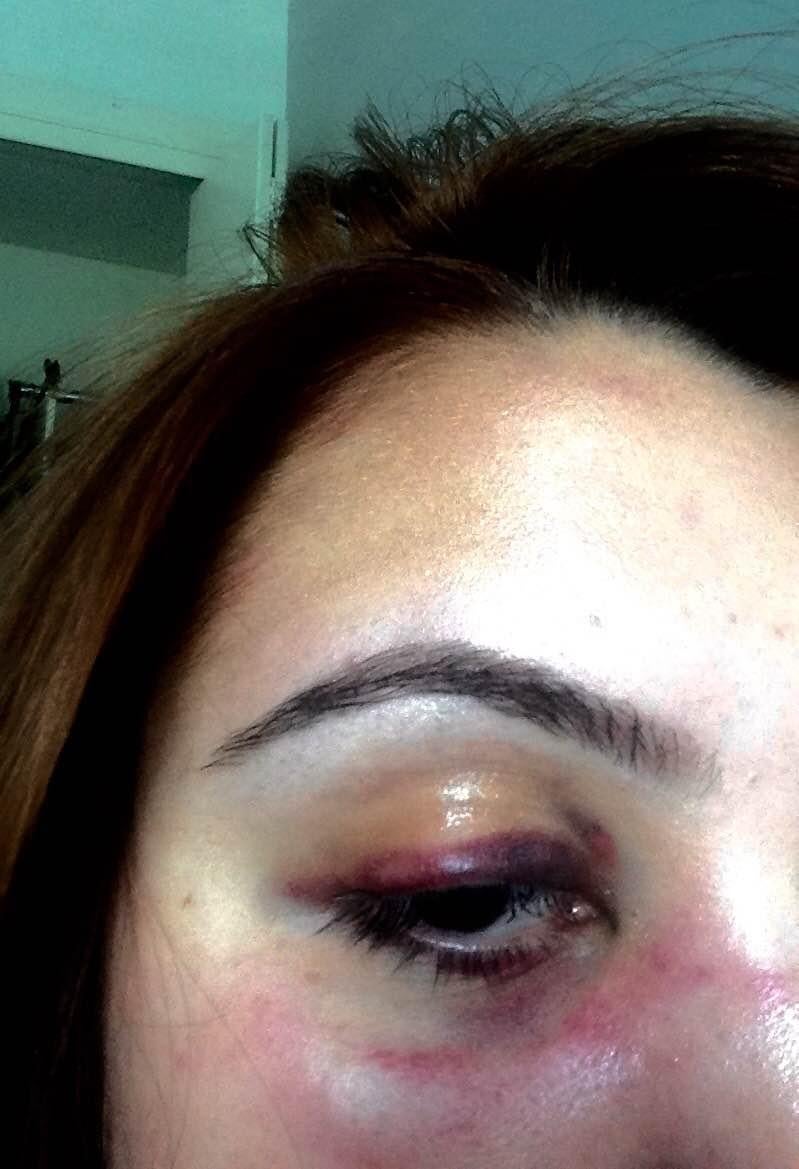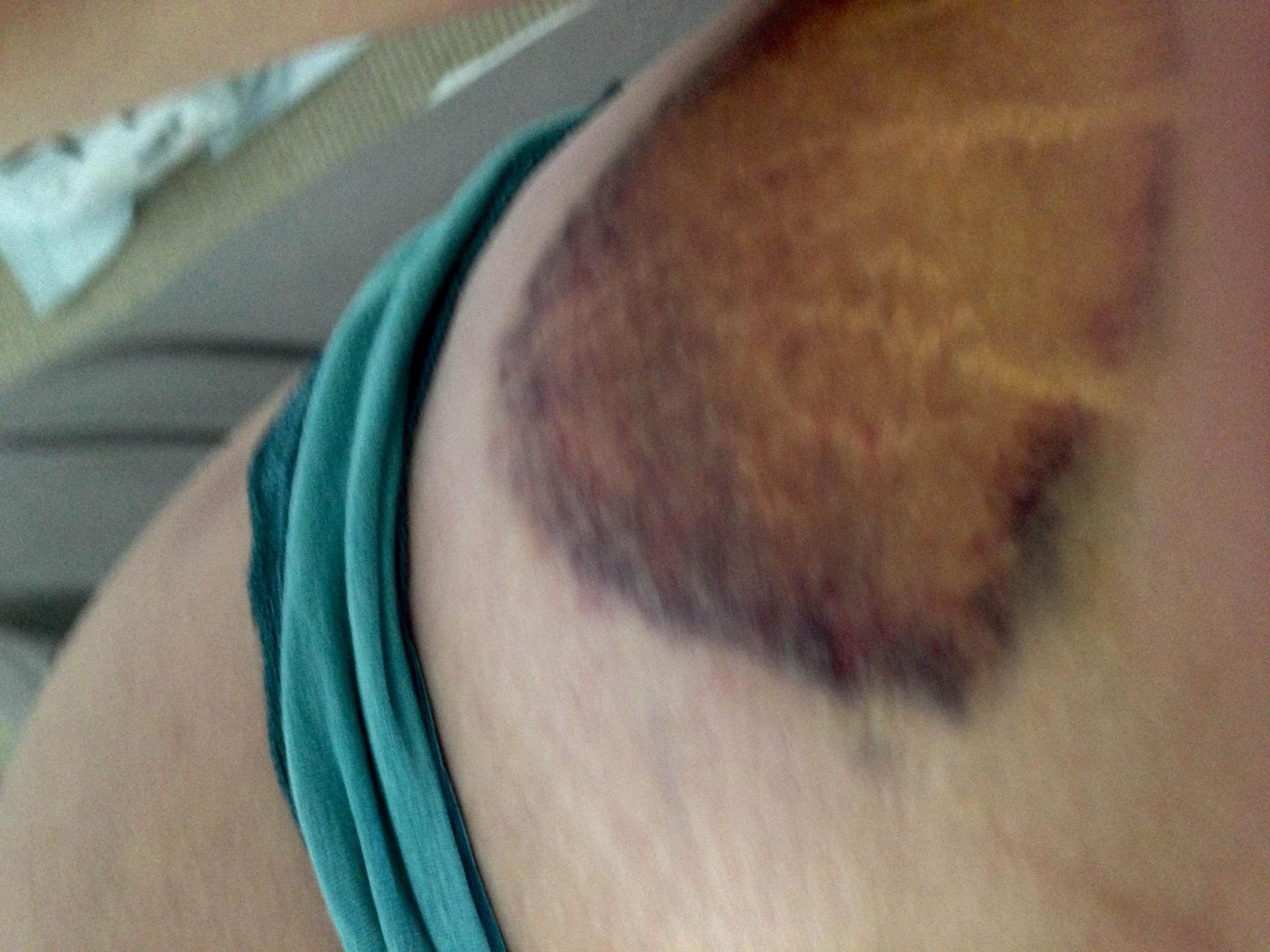Sussex University let senior lecturer continue teaching after he beat up student girlfriend
Exclusive: Dr Lee Salter remains employed by the institution despite being found guilty of punching and stamping on Allison Smith

Your support helps us to tell the story
From reproductive rights to climate change to Big Tech, The Independent is on the ground when the story is developing. Whether it's investigating the financials of Elon Musk's pro-Trump PAC or producing our latest documentary, 'The A Word', which shines a light on the American women fighting for reproductive rights, we know how important it is to parse out the facts from the messaging.
At such a critical moment in US history, we need reporters on the ground. Your donation allows us to keep sending journalists to speak to both sides of the story.
The Independent is trusted by Americans across the entire political spectrum. And unlike many other quality news outlets, we choose not to lock Americans out of our reporting and analysis with paywalls. We believe quality journalism should be available to everyone, paid for by those who can afford it.
Your support makes all the difference.A senior lecturer convicted of beating a former student he was in a relationship with was allowed to continue teaching, despite the protests of his traumatised victim.
Dr Lee Salter, a media and communications lecturer at the University of Sussex, remains employed by the institution after being found guilty of assaulting Allison Smith, a 24-year-old student he met during an induction day at the university.
Salter was convicted of assault by beating and causing criminal damage to belongings at Brighton Magistrates’ Court on 13 July this year.
Ms Smith had been punched in the face, knocked out and stamped on, and said she had salt poured into her eyes and ears.
Salter was charged on 20 June and, despite repeated complaints made to the university, was allowed to continue teaching as normal.
When The Independent contacted the university two weeks ago, a spokeswoman said Salter remained an employee. The Independent understands that as such he could have been able to teach in the coming term.
It was only when The Independent continued to pose questions that a source involved in the trial said his employment status had "changed" in that he has now been suspended from teaching.

Sussex University was unable to confirm this in writing.
Salter pleaded not guilty at court, but received a 22-week jail sentence suspended for 18 months, was ordered to complete 150 hours of unpaid work and issued with a restraining order not to contact his victim.
He has since lodged an appeal against the conviction.
Speaking to The Independent, Ms Smith described the “extreme physical and emotional trauma” she experienced during her one-year relationship with the senior member of staff.


She said that Sussex University knew of the relationship, but advised the pair be “discreet” since they were both consenting adults.
Following the attack, Ms Smith sought guidance from student support officers, but said she received no response from the university itself.
Counsellors who supported Ms Smith through the trial said the university had displayed a “concerning lack of care for the safety and welfare of its students”.

Gail Gray, chief executive of RISE, Brighton and Hove’s specialist domestic abuse service, said: “This is not a romantic ‘Educating Rita’ scenario. This is about a man who has abused and exploited his position of power and authority to perpetrate domestic abuse.”
During the 10-month period between his arrest and conviction, Salter continued to teach, the university has admitted, while Ms Smith said she remained so traumatised she was afraid to leave the house.
This is despite regulations laid out on the university’s own website which say “staff and students are subject to disciplinary procedures that, amongst other things, proscribe violent behaviour”.
The policy reads: “The University will take disciplinary action in accordance with its procedures against anyone who behaves in a violent manner including, should it be necessary, the immediate exclusion of the perpetrator from the campus.
“The University may also seek injunctions to exclude the perpetrators of violence from University premises in order to protect staff and students from further violent incidents.”
Violence is defined in the same university policy document as: “Any incident in which a member of the University community is abused, threatened, subjected to overly aggressive behaviour or language or assaulted, in circumstances arising out of the course of their employment of studies or not any damaging or hurtful effects either physical or emotional result.”
Domestic violence campaigners have argued that by failing to exclude Salter, or introduce any repercussions, the university risks putting other vulnerable students in danger.
Ms Gray, whose charity assisted Ms Smith and attended the trial on her behalf, said: “It is concerning that the university appeared to take no action to minimise his contact with students prior to his conviction.
“This is at odds with an educational establishment’s first priority which is their duty of care to their students, many of whom may be vulnerable young women and men.
“Their actions conveyed a message to their students that domestic abuse is acceptable and that university staff will not be held accountable for their behaviour.”
Described by Ms Smith as a "manipulative and cruel man”, Salter alluded to her of having previous relationships with former students. She said he attended his court sentencing accompanied by another young student from the University of Brighton.
The court heard that Salter’s relationship with that student would be “closely monitored” as part of his sentencing.
On the night of the assault, Salter had become angry and violent in reaction to Ms Smith's attempts to comfort him, the court heard.
Salter knocked Ms Smith out with a punch to the face. When she came round, he threw a container of salt at her face, which damaged her nose and chipped her tooth.
She chose not to attend the trial and described experiencing flashbacks to the night of the assault, as well as being unable to attend job interviews, sleep or socialise as a result of the trauma and anxiety caused.
She said in her victim statement: “The assault, the trial and the anxiety that has come from all of this has changed my life. It has completely put my life on hold.”
“I feel as though he not only so freely stamped on me physically but stamped out my confidence.
“I have graphic nightmares about what happened, I can see his foot coming down on me, salt being poured over me, and I wake up shaking and sweating.
“I often fear that another young woman will have to endure what I have with him and I fear that I won’t have closure for a long time. The shock of what happened; the patterns of manipulation, the disturbing physical and verbal abuse will never leave me.”
The Independent contacted Dr Salter but he was unable to provide a comment.
Responding to the actions taken by Sussex University, the National Union of Students said the union did not believe Dr Salter should be able to remain in his post and called on the institution to adopt a strict strategy in dealing with assault and violence.
Hareem Ghani, NUS women’s officer said: “What happened to Allison is truly appalling, yet unsurprising. This case is indicative of wider issues around sexism, domestic assault and how we tackle violence against women within universities and society as a whole.
“Universities also need to be aware of the precedent they set when they allow convicted criminals to retain their posts and target other vulnerable women. The message from Sussex University is clear: we do not care for the welfare of our women students.”
A spokeswoman for Sussex University said: “The University had been following the court case closely and our thoughts are with our former student. A senior member of the University’s management team has been in regular contact with her throughout and they continue to support her.
“The University does not tolerate violence of any kind and it is important that such matters are dealt with by the police and the courts, which takes precedence over employment procedures. The University has established disciplinary procedures and we are responding to the court's findings, however we are unable to comment on individual employment matters.
“We provide a wide range of support for students including a 24 hour service delivered by a team of professional support staff and a dedicated team of counselling professionals who provide support on campus as well as referring students to a range of other national and local services.”